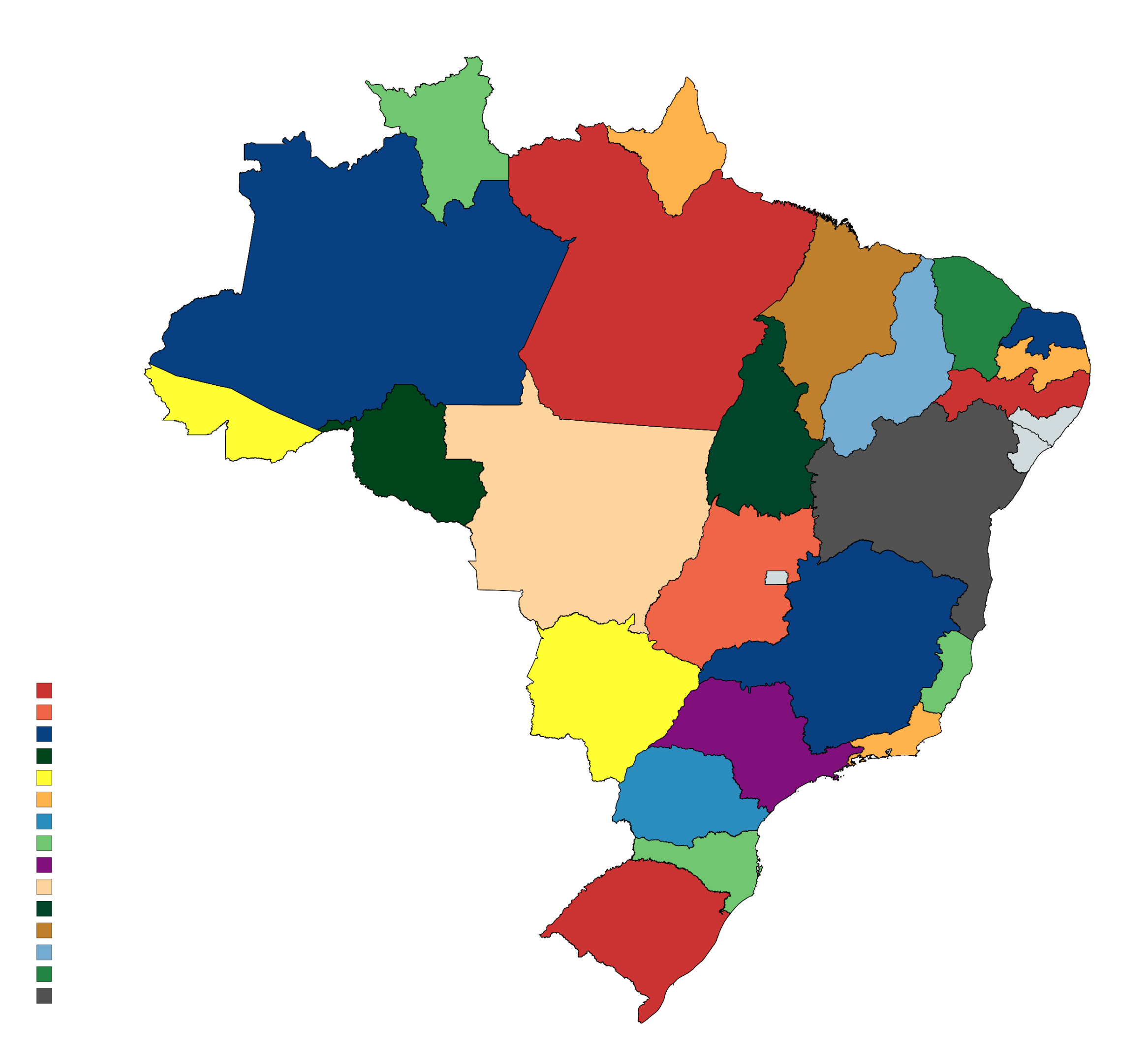Altered states
Source: G.Leonardo, CC BY-SA 4.0 <https://creativecommons.org/licenses/by-sa/4.0>, via Wikimedia Commons
As indicated when I translated the names of some São Paulo metro stations, place names and proper nouns can’t really be translated - except that it’s fun to see what you come up with. Twelve of Brazil’s 26 state names are generally considered to come from indigenous languages, although many of their origins are still disputed. Most of the following are Tupi, but not all. Amapá (“place of rain” or “land that ends/island” or the name of a tree), Ceará (“parrot song”), Goiás (“people with the same origin”), Maranhão (“the river that runs”), Pará (“river-sea”), Paraíba (“difficult to invade river-sea”), Paraná (“river” or “river that looks like an ocean”), Pernambuco (“hole in the ocean”), Piauí (“river of fishes”), Roraima (“green mountain” or “mother of winds” or “cashew mountain”), Sergipe (“crab river”), and Tocantins (“toucan beak”).
The other 14 states have Portuguese names, which would translate (literally and occasionally purposely obtusely) as:
Dry
Lagoons
Amazons
Bay
Holy Spirit
Big Woods
Big Woods of the South
General Mines
January River
Great River of the North
Great River of the South
Rondon’s Land
Saint Catherine
Saint Paul
